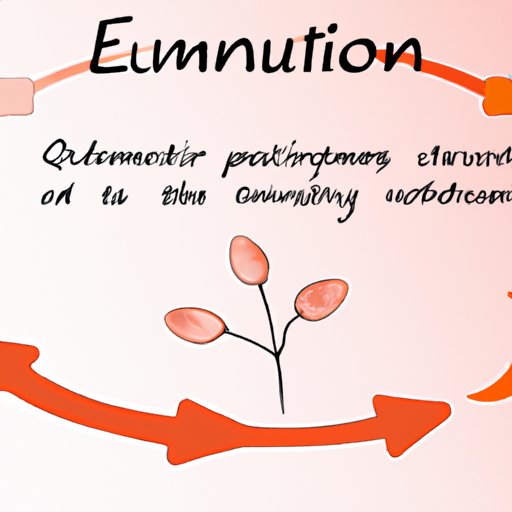Introduction
Many women struggle with infertility, irregular periods, and other reproductive health issues. Understanding the hormonal mechanisms involved in ovulation is essential to addressing these issues effectively. However, the complexity of the menstrual cycle and the various hormones involved can make it challenging to identify which hormone triggers ovulation. In this article, we will explore the role of luteinizing hormone (LH) in triggering ovulation and its interplay with other hormones in the menstrual cycle.
Luteinizing Hormone: The Key to Triggering Ovulation
Luteinizing hormone (LH) is a hormone produced by the pituitary gland. It plays a crucial role in triggering ovulation by stimulating the ovaries to release a mature egg. During the menstrual cycle, the level of LH in the body increases gradually until it reaches a surge, triggering ovulation. LH surge typically occurs around day 14 of a 28-day menstrual cycle.
In addition to triggering ovulation, LH also plays a role in preparing the body for conception. It triggers the production of progesterone, a hormone necessary for preparing the uterus for implantation and maintaining a healthy pregnancy.
The Body’s Natural Clock: How Hormones Control Ovulation
The menstrual cycle is a complex process involving the interplay of hormones, including follicle-stimulating hormone (FSH), estrogen, progesterone, and LH. The hypothalamus, pituitary gland, and ovaries work together to regulate these hormones and control ovulation.
The hypothalamus, located in the brain, produces gonadotropin-releasing hormone (GnRH). GnRH signals the pituitary gland to release FSH and LH. FSH plays a crucial role in the early stages of the menstrual cycle by stimulating the growth of follicles that contain immature eggs. As the follicles develop, they produce estrogen, which causes the lining of the uterus to thicken, preparing it for implantation.
As estrogen levels increase, it signals the pituitary gland to release more LH. The surge in LH triggers ovulation, releasing a mature egg from the follicle. After ovulation, the follicle turns into a corpus luteum, which produces progesterone. Progesterone thickens the uterine lining, preparing it for implantation.
Understanding Ovulation: The Role of Follicle-Stimulating Hormone and Luteinizing Hormone
Follicle-stimulating hormone (FSH) is another hormone involved in the menstrual cycle. It is produced in the pituitary gland and plays a crucial role in stimulating the growth of follicles in the ovaries. As the follicles mature, they produce estrogen, which, in turn, stimulates the release of LH.
FSH and LH work together to trigger ovulation. FSH stimulates the growth of the follicles, and LH triggers ovulation by releasing a mature egg from the follicle. Once the egg is released, the corpus luteum produces progesterone to prepare the uterus for implantation.
The Biological Mechanisms Behind Ovulation: Unpacking the Role of Hormones
Ovulation involves several complex hormonal processes. However, these processes are tightly regulated by feedback mechanisms that ensure hormonal balance.
For example, as estrogen levels rise, it signals the pituitary gland to produce more LH. However, once LH reaches a certain level, it triggers a surge that triggers ovulation. After ovulation, the corpus luteum produces progesterone, which signals the hypothalamus to decrease the production of GnRH, reducing the production of LH and preventing additional ovulation.
Other factors can also affect ovulation, such as stress, diet, exercise, and medication. Hormonal imbalances caused by these factors can disrupt the menstrual cycle and reduce fertility.
Exploring the Effects of Hormones on Ovulation: A Comprehensive Overview
Understanding the effects of hormones on ovulation can help women optimize their reproductive health. Maintaining a healthy lifestyle, such as getting regular exercise and eating a balanced diet, can help regulate hormonal balance and improve ovulation.
Other things women can do include tracking their menstrual cycle, identifying the signs of ovulation, and avoiding certain medications that can interfere with ovulation. Women experiencing irregular periods or other reproductive health issues should consult their healthcare provider for advice and treatment.
Conclusion
Luteinizing hormone (LH) is the hormone that triggers ovulation. However, the menstrual cycle is complex, involving many hormones and feedback mechanisms that regulate hormonal balance. Understanding these mechanisms can help women optimize their reproductive health and address issues such as infertility, irregular periods, and other reproductive health issues.
Women should consult their healthcare provider for advice and treatment if they experience irregular periods or other reproductive health issues.
